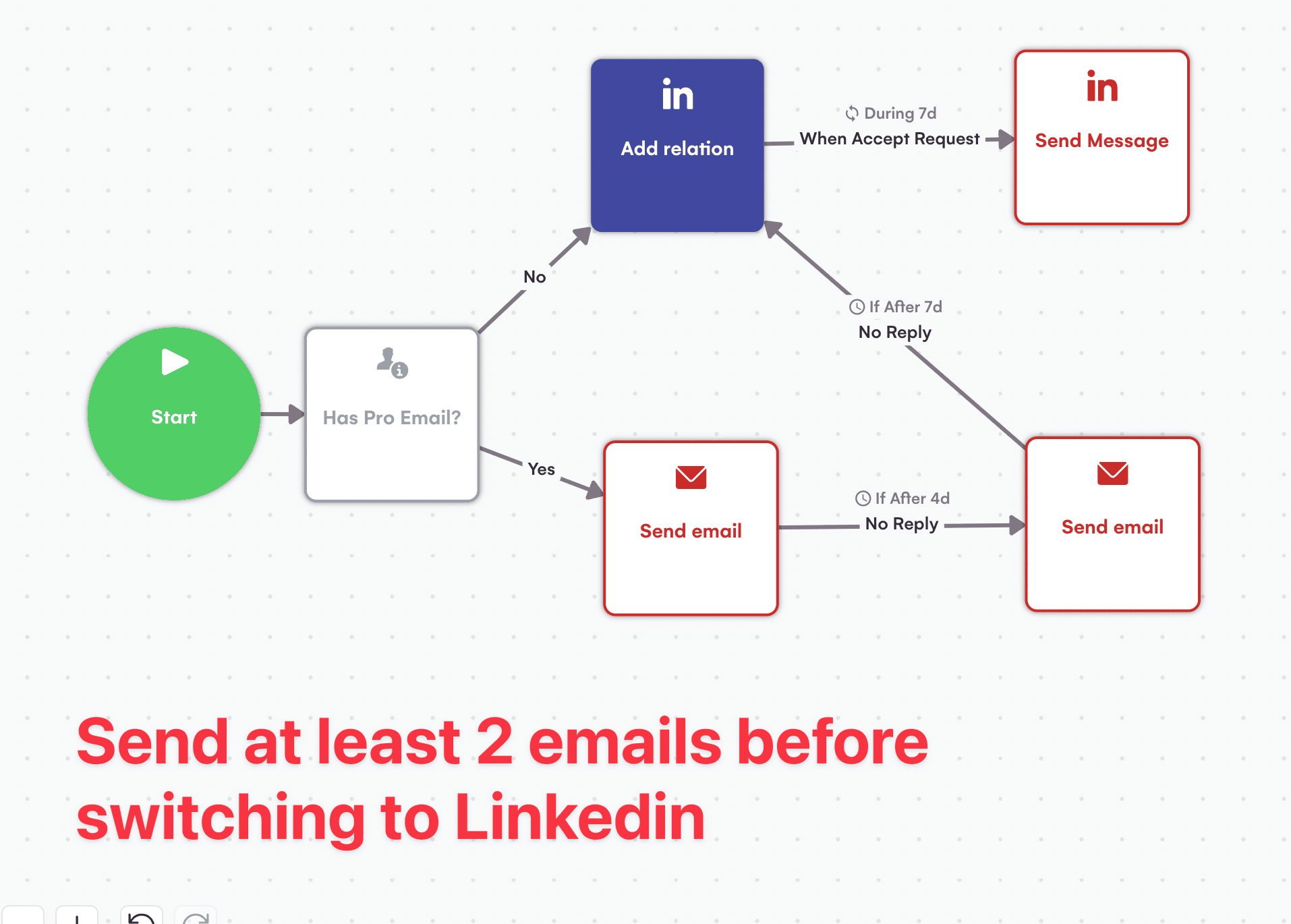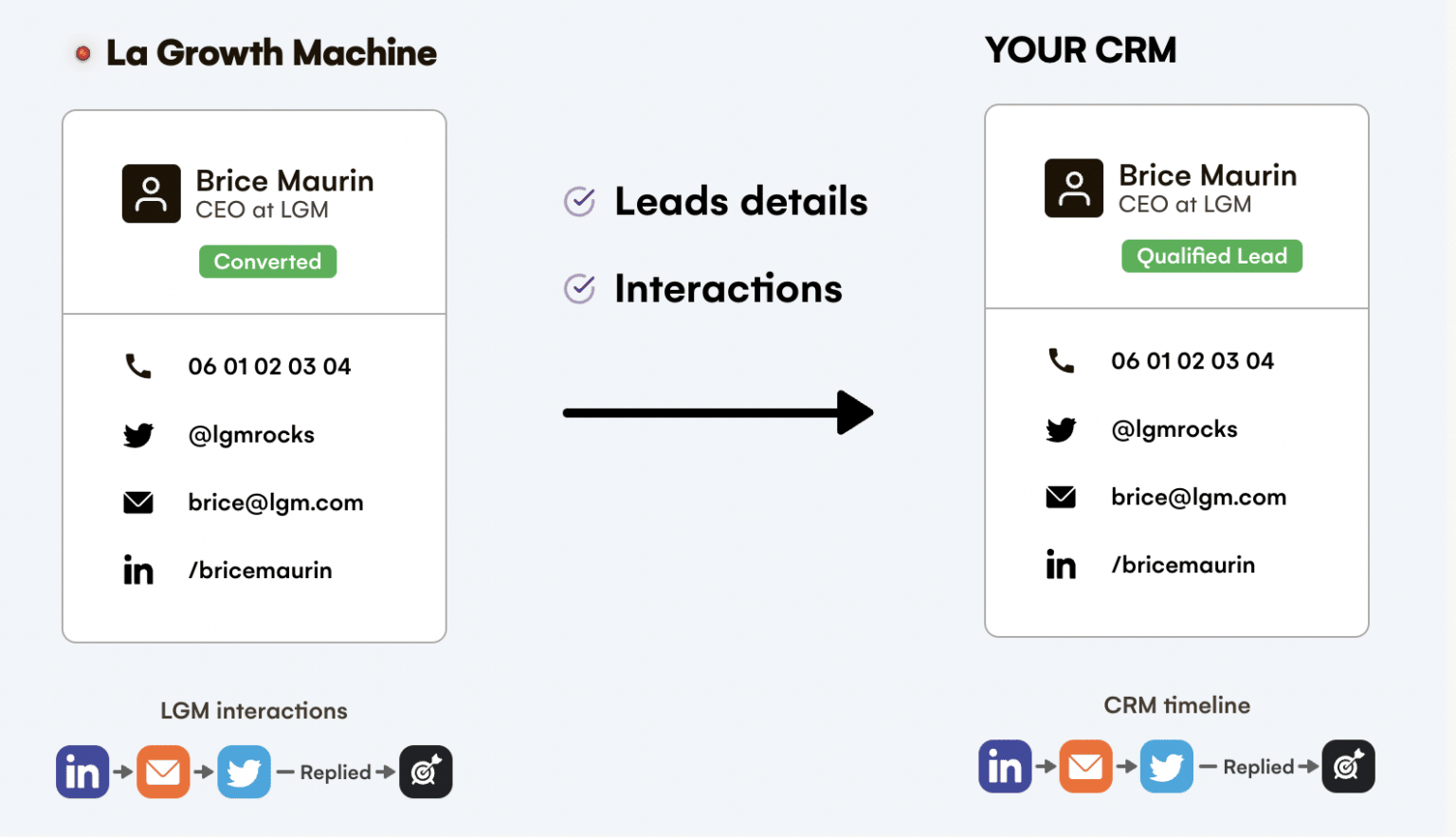
CRM and Multichannel Outreach: A Synergistic Approach to Customer Engagement
In today’s hyper-connected world, customers interact with businesses through a multitude of channels. From traditional email and phone calls to social media, live chat, and mobile apps, the customer journey is fragmented and complex. To effectively engage with customers and build lasting relationships, businesses need a unified and strategic approach to communication. This is where the synergy between Customer Relationship Management (CRM) systems and multichannel outreach comes into play.
Understanding the Core Components
Before delving into the benefits of combining CRM and multichannel outreach, it’s essential to understand the individual components:
-
Customer Relationship Management (CRM): At its core, CRM is a technology-driven strategy for managing and nurturing customer relationships. A CRM system serves as a centralized repository for customer data, including contact information, purchase history, interactions, preferences, and more. This data empowers businesses to gain a holistic view of each customer, enabling personalized and targeted interactions.
-
Multichannel Outreach: Multichannel outreach refers to the practice of engaging with customers across a variety of communication channels. These channels can include:
- Email: A staple for marketing campaigns, newsletters, personalized messages, and transactional communications.
- Phone: Still relevant for direct conversations, sales calls, customer support, and relationship-building.
- SMS: Ideal for quick updates, appointment reminders, promotional offers, and time-sensitive information.
- Social Media: A powerful platform for brand awareness, community engagement, customer service, and targeted advertising.
- Live Chat: Provides real-time support and immediate assistance on websites and mobile apps.
- In-App Messaging: Enables targeted communication within a mobile application, enhancing user experience and driving engagement.
- Push Notifications: Used to deliver timely alerts, reminders, and promotional messages to mobile app users.
The Power of Integration
When CRM and multichannel outreach are seamlessly integrated, businesses unlock a wealth of opportunities to enhance customer engagement, improve communication effectiveness, and drive business growth. Here are some of the key benefits:
-
Personalized Customer Experiences:
- Data-Driven Insights: CRM data provides valuable insights into customer behavior, preferences, and needs. This information can be used to personalize messaging across all channels.
- Targeted Communication: By segmenting customers based on demographics, purchase history, or engagement level, businesses can deliver targeted messages that resonate with each individual.
- Relevant Content: CRM data can inform the creation of relevant content, such as personalized product recommendations, tailored offers, and educational resources.
-
Enhanced Customer Engagement:
- Preferred Channel Communication: By understanding a customer’s preferred communication channels, businesses can reach them where they are most likely to engage.
- Consistent Messaging: CRM ensures that all customer interactions are consistent across channels, reinforcing brand identity and building trust.
- Timely Responses: Integration with channels like live chat and social media enables businesses to respond to customer inquiries promptly, improving satisfaction.
-
Improved Communication Effectiveness:
- Automated Workflows: CRM can automate communication workflows, such as sending welcome emails, follow-up messages, and appointment reminders.
- A/B Testing: By testing different messaging and channel combinations, businesses can optimize their communication strategies for maximum impact.
- Analytics and Reporting: CRM provides detailed analytics on communication performance, allowing businesses to track key metrics and identify areas for improvement.
-
Streamlined Sales and Marketing Processes:
- Lead Nurturing: CRM enables businesses to nurture leads through targeted email campaigns, personalized content, and timely follow-up calls.
- Sales Automation: Automate sales tasks such as sending quotes, scheduling appointments, and tracking deal progress, freeing up sales reps to focus on building relationships.
- Marketing Automation: Automate marketing campaigns, such as email marketing, social media posting, and lead scoring, to improve efficiency and effectiveness.
-
Better Customer Service:
- Omnichannel Support: Provide seamless customer service across multiple channels, allowing customers to choose the channel that is most convenient for them.
- Agent Empowerment: Equip customer service agents with a 360-degree view of the customer, enabling them to provide personalized and efficient support.
- Faster Resolution Times: Integrate CRM with knowledge base systems and self-service portals to empower customers to find answers to their questions quickly.
Strategies for Successful Implementation
To successfully implement CRM with multichannel outreach, businesses should consider the following strategies:
- Define Clear Goals and Objectives: Determine what you want to achieve with your CRM and multichannel outreach strategy. Are you looking to increase sales, improve customer satisfaction, or reduce churn?
- Choose the Right CRM Platform: Select a CRM platform that integrates seamlessly with your preferred communication channels and meets your specific business needs.
- Develop a Comprehensive Communication Strategy: Map out the customer journey and identify the key touchpoints where you can engage with customers across different channels.
- Segment Your Audience: Divide your customer base into segments based on demographics, behavior, and preferences.
- Personalize Your Messaging: Tailor your messaging to each customer segment, using data from your CRM to create relevant and engaging content.
- Automate Workflows: Automate repetitive tasks to improve efficiency and ensure consistency.
- Monitor and Analyze Performance: Track key metrics to measure the effectiveness of your communication strategy and identify areas for improvement.
- Train Your Team: Ensure that your sales, marketing, and customer service teams are properly trained on how to use the CRM system and implement the multichannel outreach strategy.
Challenges to Consider
While the benefits of integrating CRM with multichannel outreach are significant, there are also some challenges to consider:
- Data Silos: Integrating data from multiple channels into a single CRM system can be challenging.
- Channel Overload: It’s important to avoid overwhelming customers with too many messages across too many channels.
- Privacy Concerns: Businesses must be mindful of customer privacy and comply with data protection regulations.
- Cost: Implementing and maintaining a CRM system and multichannel outreach strategy can be expensive.
Conclusion
In today’s customer-centric landscape, businesses need to adopt a holistic approach to communication. By integrating CRM with multichannel outreach, businesses can create personalized customer experiences, enhance engagement, improve communication effectiveness, and drive business growth. While there are challenges to consider, the benefits of this synergistic approach far outweigh the risks. By implementing a well-defined strategy, businesses can leverage the power of CRM and multichannel outreach to build lasting relationships with their customers and achieve sustainable success.

